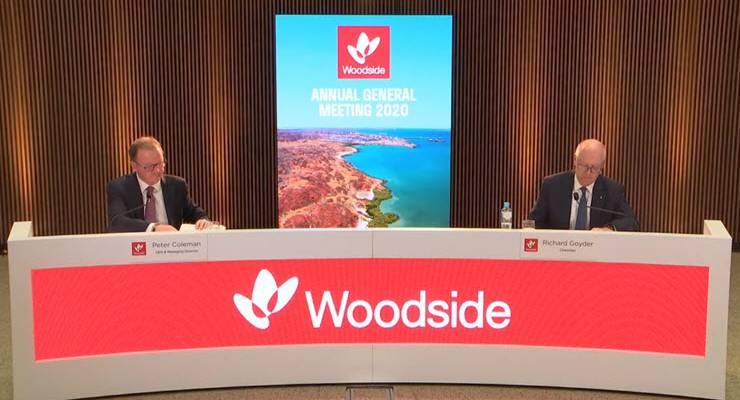
The annual general meeting (AGM) mini-season for companies with December 31 balance dates finished on Friday, although ASIC has granted a two-month extension for stragglers who couldn’t get their act together during the COVID-19 shutdown.
Not many companies opted for delay beyond May 31.
As this chronological list shows, the oOH!media AGM is being held tomorrow and G8 Education is scheduled for June 17. However, all ASX100 companies stuck with the usual timeframe meaning the likes of Rio Tinto, Woodside, Santos, Alumina, AMP, Sydney Airport, IRESS, Iluka Resources, OZ Minerals, Scentre Group, Adelaide Brighton and CIMIC held their AGMs in April or May.
Unsurprisingly, given the long history of poor governance by the Murdoch family, the News Corp-controlled Brisbane Broncos is one of the few December 31 balance date companies yet to set a date for its AGM.
When compared with the federal and state governments suspending parliaments and deferring budgets, public companies have generally done quite well in keeping the show on the road. However, as was flagged in this April 2 Crikey piece, scrutiny of boards was definitely reduced by the lack of physical gatherings.
Hardly any shareholders actually turned up to an AGM during this period given that they were banned from most of them and the small number of companies, such as CIMIC, which only “strongly discouraged” attendance, managed to kept physical attendance close to zero.
As this list shows, for the earlier AGMs such as Scentre Group, Woodside and Santos, it became a familiar routine of first releasing the notice of meeting strongly discouraging physical attendance and then later updating that, with much regret, physical attendance was no longer allowed.
Later on in the season, companies went straight for the online-only version with the likes of Sydney Airport not even saying in the notice of meeting where the directors would be conducting the online meeting from.
You got the sense that lots of companies loved the fact they didn’t have to deal with shareholders directly and would relish moving permanently to an online-only model.
The online AGM meant it was the chair and CEO who did the heavy lifting with most other directors sidelined and not required. This high-quality webcast of the one hour and 51 minute Woodside Energy AGM was a good example of a chair and CEO sitting together running an extended interactive AGM.
However, Woodside did not offer a facility for unscripted oral questions although, as with most companies, shareholders could submit written questions before the meeting or type in written questions during the meeting which chair Richard Goyder duly read out and then answered.
Some companies, such as Scentre Group and CIMIC, received no questions during the meeting and ran rapid-fire AGMs. The climate activists still ensured there was plenty of debate in the resources sector with the best example being Rio Tinto which had a two-hour online AGM where about 10 different shareholders asked unscripted oral questions over the phone line.
Rio’s chairman was in London and the CEO was in Sydney. It lost brownie points for only offering up audio rather than video of its leadership team, but the debate was excellent and activist group Market Forces was pleased when its climate resolution opposed by the board received an impressive 37% proxy support.
Santos also had excellent climate-related debate with big climate protest votes but it deserves a brickbat for not offering live voting during its online AGM, meaning that groups such as the Australian Shareholders’ Association had to come to private arrangements when it came to voting its undirected proxies.
Most companies did offer live voting and this should continue.
Coca-Cola Amatil responded positively to a request to release the proxy votes before the meeting started, something which all companies should do.
This is to avoid the Woodside situation where it withheld disclosure of the record-breaking protest vote over its carbon disclosure policies until the last minute of the AGM when there was no further opportunity to ask questions about how the company intended to respond.
All up, the AGM mini-season had less scrutiny than usual but was a giant step forward for what should become mandatory hybrid AGMs where shareholders can ask live unscripted oral questions from the meeting itself or the comfort of home.
The physical AGM should never be discarded, as US law now allows, because there is nothing quite like the accountability of seeing the whites of the eyes of the directors during a period of sustained questioning whilst voting remains open for those in the room.
Rather than flying to the US to quiz Rupert Murdoch at his Fox Corp and News Corp AGMs, it would be far easier to ask live questions from home in Melbourne.
We just need the law in both Australia and the US to be changed so that live online questions and voting are made mandatory, along with the physical AGM for those who still want to turn up and chat with the directors.








Agree with having online and physical AGMs. It would make working and attending an AGM much easier to participate in where one could not with requiring physically attendance only. I think an online process would greatly increase AGM participation.
What would also be a good innovation that could make companies more responsive is if Super Funds allowed representations from members regarding AGM voting intentions. Understand the Super Funds would have the last say but having member input could democratise Super and potentially reflects more public opinion for company proposals. It might also mean people pay a bit more attention to their Super.